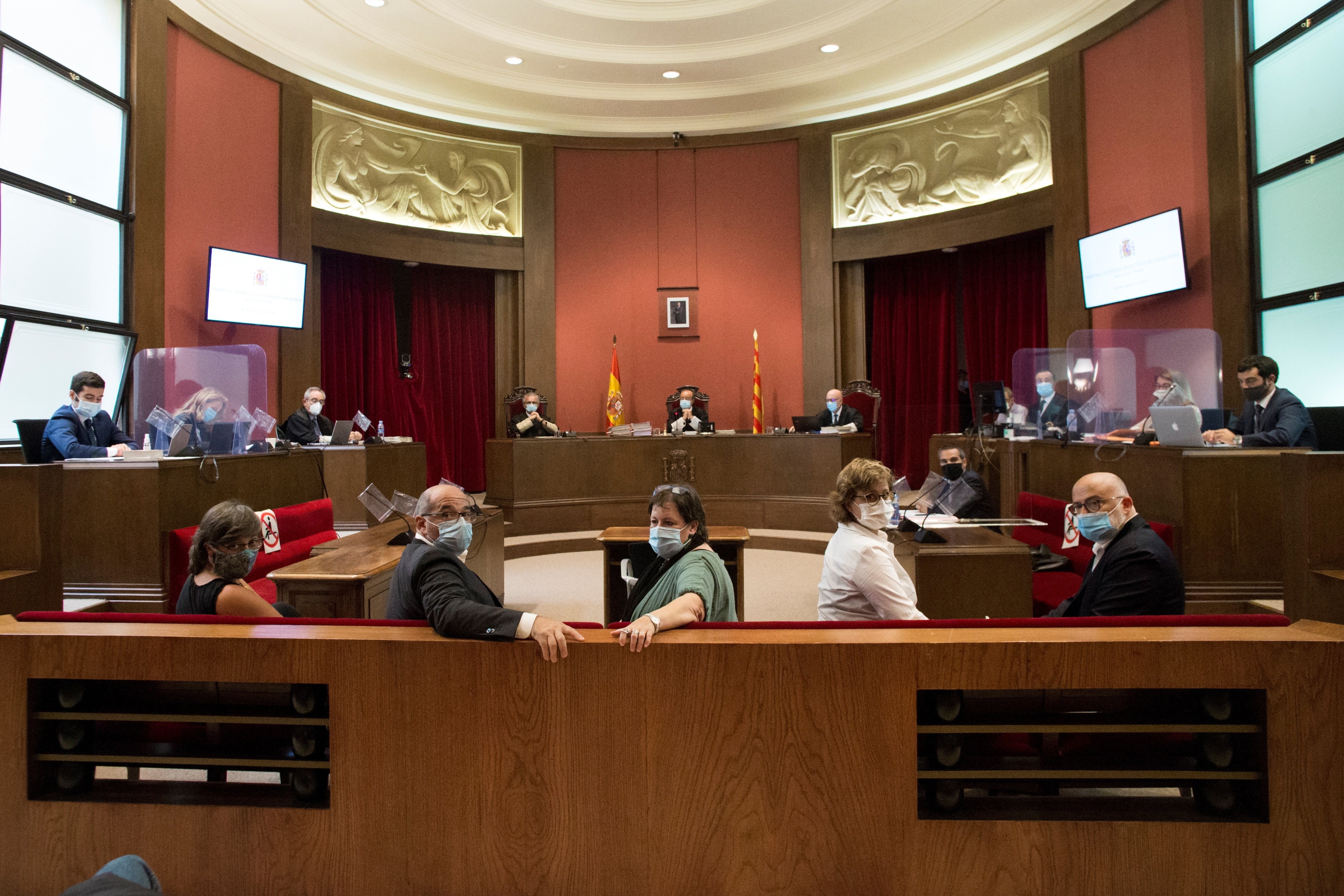Invalidated. The criminal chamber of the Spanish Supreme Court has annulled the decision of the Catalan High Court (TSJC), of October 10th, 2020, which convicted four members of the Catalan Parliament's Bureau for disobedience for having proceeded with the two laws related to the holding of the referendum of 1st October 2017, the Spanish court reported this Tuesday. The Supreme Court affirms that "the right to an impartial court has been violated", since two judges who were part of the trial court "had, in previous resolutions, expressed an explicit position on issues that later constituted the essential object of the trial."
The court was formed by judges Jesús Maria Barrientos, president of the TSJC, Carlos Ramos and Jordi Seguí, and the appeals were against Barrientos and Ramos. The chamber therefore upholds the appeal presented by Anna Simó, to which her fellow Bureau members Lluís Corominas, Ramona Barrufet and Lluís Guinó joined. Judges Barrientos and Ramos, exceptionally, were subsequently excluded from the second trial of a Catalan parliamentary Bureau - tried this year for events that took place in 2019 - and with the two judges recused at the behest of Josep Costa, due to their lack of impartiality on the pro-independence cause, as decided on that occasion by chamber 77 of the TSJC, whose decision is now replicated by the Supreme Court, although for a different and more technical reason.
The TSJC sentenced these four pro-independence members who sat on the Catalan Parliament's procedural organ in 2017 to a 1-year 8-month ban from public office and ordered them each to pay a fine of 30,000 euros after finding them guilty of disobedience of the Constitutional Court, which had ordered the Bureau MPs not to take any action to promote the Catalan independence referendum. Now the trial will have to be repeated with a new court. This decision does not affect either CUP deputy Mireia Boya, who was acquitted by the TSJC in the same case, or Carme Forcadell, who as speaker of Parliament was also the leader of that same Bureau, but was tried in the Supreme Court in 2019.
The actions of the two judges
In the resolution, the Supreme Court states that Anna Simó denounced the lack of impartiality of the president of the court, Jesús Maria Barrientos, and the judge Carlos Ramos, the reporting judge in the case, because the two were part of the court that admitted the three complaints against the Parliament Bureau that, successively, gave rise to this case; and also another court that dismissed the appeals filed against those decisions.
In the resolutions on those complaints, in particular the one dated March 16th, 2017, which rejected one of the appeals, Barrientos and Ramos explicitly adopted, according to Simó, a position on several issues of the case, which would suppose, in her opinion, an unequivocal "prejudice" in relation to all or most of the defence arguments, separating them from the required objective impartiality. And the Supreme Court now shares the former Catalan MP's view on this.
The resolutions: a 'pill' or script in the trial
In today's resolution, the five judges of the Supreme Court (with judge Leopoldo Puente as spokesperson) make reference to and ensure that they apply the doctrine of the Spanish Constitutional Court (CC) and the European Court of Human Rights (ECHR) on the right to an impartial court. They specify that in admitting the prosecution's complaint, the TSJC admits as valid the CC's warnings to the members of the Bureau and the approval of the referendum laws, which no one questions. It adds, however, that Barrientos and Ramos do take a position, when, in the pre-trial procedures, they take for granted that the orders of the CC are clear, while the defences assert they were not; that the CC is considered the competent body, and that the MPs' inviolability did not protect them. And it maintains that most of the substantial resolutions in the sentence, "already appeared, in the form of a "pill", script or tight summary, contained in the resolution of March 16, 2017, in which the appeal was dismissed and the complaint was admitted".
The Supreme Court specifies that if the two judges, whose "accredited track record" it recognizes, had seen some other element of evidence in the trial, they would have changed their opinion, but since this did not exist, it rules that they had already taken a position on the appeals that were pronounced before the trial. For these reasons, it declares the nullity of the trial of the Bureau and orders it to be repeated.

